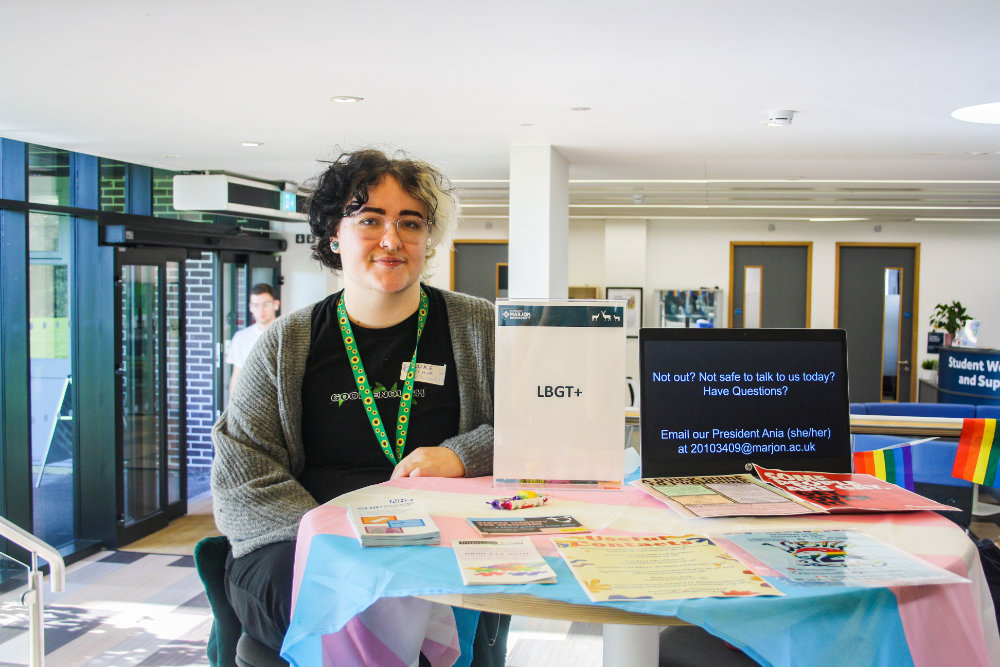Diversity

The University has a small and friendly campus which we hope you will find matches up to its aim to be fully inclusive. In order to advance equality the University has a standing equality item on all committee agendas to represent staff and students' interests with regard to inclusivity. The University works in partnerships across the higher education sector with other universities and organisations such as the Equality Challenge Unit (now known as Advance HE) to ensure it is proactively working to eliminate discrimination and enhance equality of opportunity.
The University also has other policies in place which are there to protect staff and students from harassment and bullying. This will not be tolerated, including that related to gender, sexual orientation, ethnicity and disability. Good practice in equality and diversity is the responsibility of our whole community and further resources are avilable through our Inclusivity Toolkit. If you struggle with any aspect of the facilities or services as a student, as a member of staff or as a visitor please contact the diversity team to let us know how we can improve.
Mental health awareness
The DIAS team holds three 'tea and talk' style cafes each year to support students and staff. These events are to raise awareness about mental health and combat the stigma and discrimination that often faces people with diagnosed mental health conditions. Drop in, find out more about mental health support and resources, or just have a quiet cuppa with us.
Disability & Inclusion Advice Service
The University has a Disability and Inclusion Advice Service (DIAS) whose role is to advise students on study adjustments and other forms of support if they have any type of long-term disability, health condition (including mental health illnesses) or impairments. This includes (but is not limited to) dyslexia and other forms of Specific Learning Difficulties, mental health conditions, mobility, hearing impairment, visual impairment, and health conditions such as cancer.
The DIAS team can be found in the Student Hub on the west side of the campus, ground floor. They hold two drop-ins per week (Mondays and Thursdays usually) so please pop in to a drop-in if you think the team may be able to help, advise and support you.
Time To Change Action Plan
In October 2014, the University signed the 'Time to Change' mental health pledge and created an action plan to help reduce stigma and discrimination for those with mental ill-health. Since then the University has held 'tea and talks', created a number of opportunities for staff to learn more about disorders such as OCD, psychosis, self-harming and eating disorders, and applied for and was re-awarded the Mindful Employer charter mark. The University will continue to prioritise learning around mental health to ensure more understanding and fair treatment for those with mental ill-health.
Inclusive campus
The University has Disability Confident Employer and Mindful Employer accreditations. Diversity training is available to staff and students, and a number of related student societies get involved in diversity and equality issues.
More infoWhat are diversity and equality?
Diversity and equality are not terms which can be interchanged. Diversity describes the range of visible and non-visible differences which exist between people, while equality means having the same value - indicating a state of balance. The University of St Mark & St John recognises the real benefits of having a diverse community of staff and students who value one another and the different contributions they can make to help us all achieve our potential.
More infoEquality resources
Click for equality resources including our Equality Reports and accessible campus maps.
More info
Diversity
We celebrate diversity and equality through an annual programme of events. Under the banner of OneMarjon, we also have an ongoing programme of staff development to ensure inclusivity is embedded into our services.
More infoEquality impact assessment
Equality impact assessment or equality analysis (EIA, EqIA or EA) is an analysis of the potential or actual effect of a policy, practice, provision or criterion on identifiable groups of people. Carrying out EIAs not only helps us meet the requirements of legislation, but also supports the University in promoting and advancing equality.
Current legislation requires all public sector bodies and institutions to ensure that decisions they take do not adversely affect individuals covered by the 'protected characteristics' outlined in the Equality Act 2010. The University is currently ensuring this through carrying out EIAs when reviewing or implementing new policy.
Reporting discriminatory incidents
At our University, we are an open and friendly community. However, if you see something of a discriminatory nature happening on campus or at an event otherwise related to the University, then we want to know about it. You can speak to a member of staff or report it anonymously using the links on MyMarjon.
More info